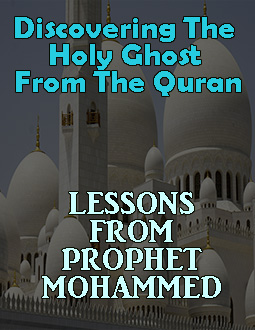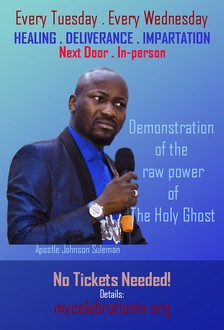Ministry of Prophet Elisha
Prophet of Peace and Restoration
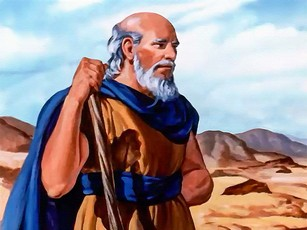
Elisha’s lifework was in educating people about keeping God’s requirements and His blessings for living in faith. His message is just as important for us today, as we seek to draw close to and become more like the God who worked through Elisha. We must pray for God’s help and seek His Spirit as Elisha did.
The personality of Elisha was very different from that of his mentor. Yet, he remained disciplined as he learned from Elijah. Up until the time that Elijah was being taken away, he referred to Elijah as my father. The age differences could not have been so much. In fact, I do not believe that it was the protocol of the time. The respect emanated from a recognition of the significant contributions Elijah to his spiritual upbringing and the secrets relevant to his office. None of these stopped Elisha from bring in fresh ideas into the management of the problem of pervasive disobedience to God’s counsel by the nations and disregard for the potential consequences of the worship of Baal.
Elisha the Prophet
We usually remember Prophet Elisha by his demand for the double portion of the anointing on Elijah during the exchange of the mantle.
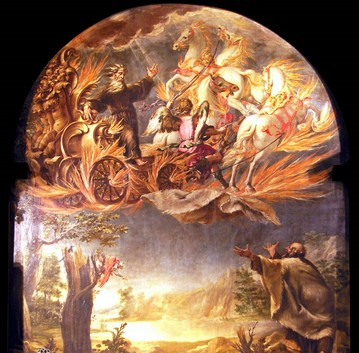
That mantle transfer has become symbolic of installation and anointing of new Christian prophets (1 Kings 19:19-21). However, the resulting power transfer continues reveal a lot about the true nature of God and His promises as Elisha went on to become the dominant prophet of the Book of Second Kings in the Bible. That is very important for young people today who accuse older preachers of being reluctant to show them the unfailing method of acquiring supernatural powers for effective evangelism.
The challenge for both Elijah and Elisha was a need to stem the rise of paganism among God’s chosen people. Having seen the efforts that his mentor Elijah put into that struggle; Elisha knew that he needed greater covering to face Elijah’s enemies who must be happy that the don was leaving town. Hence, his request for a doubling of Elijah’s spirit. We must note that the anointing is not just about working great miracles, it includes protection from the inevitable attacks of Satanic forces including the worshippers of Baal who were actively monitoring his every move.
Elisha’s job was already carved out for him. The prophet continued to improve on Elijah’s vision of restoring proper worship of the unseen God over that of Baal. Elisha’s life serves as a model in teaching righteousness and faith. He was a successful prophet whose body even in death resurrected other dead people (2 Kings 13:21).
Office of Prophets and The Man - Elisha
To understand the personality of Prophet Elisha is to start with an understanding of his call and role. In Christianity, both the priest and the prophet are spiritual pillars that mediate the flow of communication between God and man. Priests commonly facilitate the presence of people before God. He is involved in the routines of worship and presenting the concerns of the congregation before God. It can be surmised that his work centers around people’s needs before God.
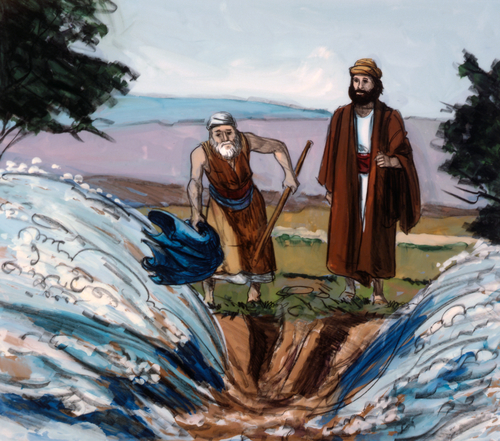
With the prophet, the flow seems to be in the opposite direction. Their primary purpose being to reveal God’s mind to the people. Most of the time, they have a picture larger than imagination of the congregation. Many people go to church with a mindset of solving problems, finding spiritual support for achieving success in life. While priests engage in rituals of the doctrine to process acceptable godly worship, prophets are focused on translating the implications of loving God as the primary key to success and social peace. Their revelations are revered because they are supposed to have access to the mind of God. Prophets have been described as guarding the gates of heaven because they are able to communicate directly with God at any instant.
Essentially, both spiritual officers have access across the divide between the terrestrial and the celestial. While one is routine and constant, like preparing and burning sacrifices on behalf people, that is, priests; the other, the prophet, commonly attends to community issues and can switch on the lights off and on to check on God as he chooses. The ministry of prophets as officers of state can be traced to Samuel who transitioned from judge to state prophet.
“Now Elisha was sitting in his house, and the elders were sitting with him. The king sent a messenger ahead, but before he arrived, Elisha said to the elders, ‘Don’t you see how this murderer is sending someone to cut off my head? Look, when the messenger comes, shut the door and hold it shut against him. Is not the sound of his master’s footsteps behind him?’ While he was still talking to them, the messenger came down to him. The king said, ‘This disaster is from the Lord. Why should I wait for the Lord any longer?’ Then Elisha said, ‘Hear the word of the Lord.’ Thus says the Lord: ‘Tomorrow about this time a seah of fine flour shall be sold for a shekel, and two seahs of barley for a shekel, at the gate of Samaria.’” (2 Kings 6:32 - 2 Kings 7:1)
Prophecies are spiritual mysteries that challenge human intellect. We notice that as an officer of the state, prophet Elisha was discussing with the elders of the community as the upset king approached his house. The king was determined to execute Elisha for dereliction of duty. Yet, God deliverance had come because of Elisha’s intermission. The king had no idea about that.
More importantly, though is the illustration that Elisha as the national voice of God, is the officer of the state responsible for explaining why God should allow so much suffering. He was consulting with concerned elders of the community on the solutions to the problem. It may be that the king was going to join the meeting uninvited. He may have heard that Elisha had summoned some of his chiefs. His anger was lit by the women who told him about how they boil their children for dinner because of pervasive hunger. How could that be in land that depended solely on God for salvation, he must have been disturbed.
Prophets have also display evidence of training apprentices. In fact, it is remarkable that contrary to general perceptions, men of God are not likely to be poor people. We understand that Elisha was a successful farmer before his call. Yet, a careful review of his ministry tends to reveal the presence of other actors around him. There must a means by which he cared for the trainees living with him.
That is, in addition to counselling and travelling across lands where he discussed with groups of prophets and others, and entertaining guests, there seems to be a regular colony of trainees around him (2 Kings 6:1; 2 kings 4:38). So, Gehazi may have been his personal assistant, yet we can see other actors coming up especially, after Gehazi’s prominence waned. In addition, the time between his call and active office seems to be about 8 years. This suggests that he was also in training for a major part of this period before finally taking on the office of the prophet for the nation of Israel. He turns around to train others in return.
What was it in his character that made Elisha to succeed? Remember that he asked for the double spirit of Elijah. Contrary to common interpretation, it was not just doubling the anointing that he desired. He asked for double spirit. That includes the strength of the moral character to run the office of the prophet. He certainly learnt a lot from Elijah. Yet, he turned the tables to show that Elijah was not necessarily that angry man that calls on fire every time things are out of order. A passion for humility ingrained in the personal character of Elisha must have attracted God to call him. His close association with Elijah in the lessons of patience must have reinforced this leadership skill. Rather than challenge Jezebel – wife of the anointed king, Elijah chose to run out of town. That’s humility and respect of God’s ordinances.
Elisha was a very respectful man.
The moment Prophet Elijah placed his personal cloak on him, Elisha submitted to the will of God and showed respect for the presence of the servant of God. He was wise enough to humbly seek the permission of Elijah before going to say goodbye to his family. In addition, he displayed obedience as another wonderful characteristic of successful leaders by submitting to the will of God without question.
To sell off twelve teams of plowing cows, host a departing party for the villagers, pack his stuff and follow Elijah is an exemplary display of respect and trust in God for a future that is better than the one he currently runs. His faith must be strong and enviable. It is worthy of note that he was a man of integrity, and history confirms God’s reward for his faithfulness.
When Elisha finally laid his hands on the mantle as the seal for his mandate, his personality began to show forth as a man closer the heart of people. The miracle of making the first oil magnate in the world continues to be remarkable. Remember that this is recorded history, not parables or oral tradition. That poor widow who had to go borrow pots to fill with unending supply of oil confirms that prophets can be used by God to alleviate the suffering of people by invoking God’s compassion (2 Kings 4:1-7). Not only were the children saved, but they also paid all debts and must have remained faithful in the service of God.
Elisha was an Old Testament prophet who lived around 800 BC, a time when God involved Himself in a very direct way in the affairs of man and the leadership of ancient Israel. Around this period, God sent at least 30 prophets to turn their citizens away from idolatry and other sins. Of them all, only Elisha’s death is associated with the resurrection of another human being. Jesus Christ is the second person in recorded history whose death is associated with miraculous resurrection of someone else (2 Kings 13:21; Matthew 27:51-53).
The Prophetic Call of Elisha
Elijah was apparently losing it at the edges, probably getting tired of challenging those in authority such as royalty and the priesthood in his campaign to root out entrenched paganism in the Northern Kingdom. Judah in the south seems to be faring better. Therefore, as Elijah began to show weariness through his complaint, God chose a replacement for him in the person of Elisha. Elijah knew exactly where he was going to find Elisha. He knew the city, state, and zip code. He knew the first name and the family name.
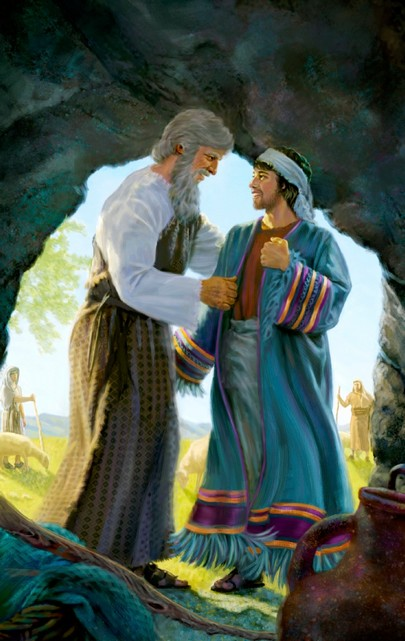
God directed him to anoint Elisha to take his place. Elisha, son of Shaphat, was from Abel Meholah in the Jordan Valley (1 Kings 19:16). After a few years of training, Elisha became God’s spokesman to the Northern kingdom. His ministry was filled with signs and miracles, proclamations and warnings. He would become known as the prophet of peace and healing.
Yet, Elisha began his ministry as Elijah’s student and graduated to become his personal attendant. The young man proved himself faithful in small things, including being promoted above others to become the trusted personal assistant to the prophet. He was officially described as having the humble duty of pouring water on the hands of Elijah (2 Kings 3:11). Elisha’s training under Elijah would gradually prepare him for his duties.
Interestingly, there was a major difference in the individual tactics of these powerful prophets. Elijah worked hard at getting the powers-that-be to understand the need to lead the people aright by forsaking paganism and elevating the true worship of The Almighty. Elisha approached the same issue differently. He adopted a people-based focus to build upon the investments of his mentor. He was wonderfully successful with this strategy with a ministry lasting over half a century.
However, to get there, God established him by proving to the other prophets the supremacy of Elisha as successor of Elijah, and the rightful occupant of the office of the Prophet of Israel. As he returned to the banks of River Jordan after the chariot took Elijah away, Elisha parted the river with Elijah’s cloak. The fifty prophets who were monitoring the situation had little choice but to pay their respect to him. In addition, they were disgraced when they could not find Elijah’s body (2 Kings 2:15-18). Everyone knew that Elijah was about to transition but only one person saw him disappear, Elisha. His words continued to prove unchallengeable from that moment. Elisha then began his prophetic career that lasted some 50 years, extending over the reign of four kings of Israel: Jehoram, Jehu, Jehoahaz and Joash.
Some Highlights from the Prophetic Ministry of Elisha
As alluded to earlier, his tenure was less confrontational of the powers that of Elijah. The miracles commonly associated with his name show that he used social good to as an evangelical tool more than a show of strength. Therefore, even though the focus remained the need to reveal the mind of God to the kingdom, he mingled a lot more within the community.
For example, he purified the source of water for Jericho (2 Kings 2:18-22). He provided water for the thirsty of army of Israel which the enemy country, Moab confused with a pool of blood (2 Kings 3:16-25). We talked about the oil that was multiplied to pay off family debt (2 Kings 4:1-7). Elisha also prayed for the Shunamite woman to bear a child, and after the child suddenly died, Elijah prayed again to get him resurrected (2 Kings 4:8-37). Others include the purification of poison soup (2 Kings 4:38-41), the multiplication of loaves (2 Kings 4:42-44), and the location and floatation of the borrowed axe (2 Kings 6:1-7). At the interface of community good and demonstration of power is Elisha’s prophecy that the siege by Samaria will end and wealth will replace famine in less than one day (2 Kings 6: 24 – 7:20). He also prophesized the defeat of Syria by Israel (2 Kings 13:14-19).
In addition, his direct encounter with power and the powerful included the healing of Naaman (2 Kings 5:1-19) and the wickedness of Hazael following the death of his master King Ben-hada of Syria (2 Kings 8:7-15). Elisha also captured and disgraced the army of Armenia sent to kidnap him by turning them blind (2 Kings 6:8-23).
It is believed to have used power negatively only on two occasions. Once, when the bears emerged out of nowhere to consume the kids and when he cursed Gehazi who have gone to lie on the prophet by collecting gifts from General Naaman (2 Kings 2:15; 2 Kings 2:23-25; 2 Kings 5:25-27).
Elisha’s Ministry of Miracles

Elisha’s prophetic ministry included works of healing and restoration. The biblical record also shows Elisha bringing joy to people through miracles from God. His gentle spirit enabled him to have a positive influence on the lives of many people (both high and low) in Israel as revealed in several illustrations in 2 Kings 4-6.
Elisha’s ministry began by healing a spring of water near Jericho (2 Kings 2:19-22). This spring possessed certain toxic qualities, and one complained to Elisha that it was unfit for drinking and had destroyed the foliage around it. Elisha asked to have some salt in a new bowl brought to him. Elisha tossed the salt into the gushing spring and the poison of the pool of water was suddenly healed.
The use of the salt was symbolic, as it was God who performed the miracle. God declared through the prophet, “Thus says the LORD: ‘I have healed this water; from it there shall be no more death or barrenness’” (2 Kings 2:21).
Elisha’s second recorded miracle granted an impoverished family of faith a financial blessing. A student of one of the religious training centers died and his wife became a widow. She was very poor and owned just one marketable item of value, a jar of olive oil. She had two sons to care for, and she asked Elisha to help her as she feared her sons would be taken away to pay a debt.
Elisha instructed her to go to all her neighbors and borrow as many empty jars as she could. A miracle was going to occur that would allow her to fill every empty jar to the top by pouring from her one jar of olive oil. The one jar of oil was multiplied miraculously, and she was able to sell enough of the valuable oil to pay off her debt and live off the remainder (2 Kings 4:1-7).
Two additional healing miracles were wrought for a married couple dwelling in the town of Shunem. Elisha the prophet often stayed at the home of this childless couple, as his ministry would take him from town to town. As a gesture of appreciation for their hospitality he prophesied that they would have a son who would bring them great joy.
Later, the little boy suffered an illness while out in the field, and his mother went searching diligently until she found Elisha. The prophet went back to her house to see what could be done. The boy had died but Elisha prayed, and God raised the boy from the dead (2 Kings 4:8-22; 2 Kings 4:23-37). The king, bow and arrow analogy given to the king who had come to visit a dying Elisha’s bed exemplifies another ministry of victory in the face of enemy harassment or opposition (2 Kings 13:14-19).
Lessons Learnt
The personality of Elisha was very different from that of his mentor.
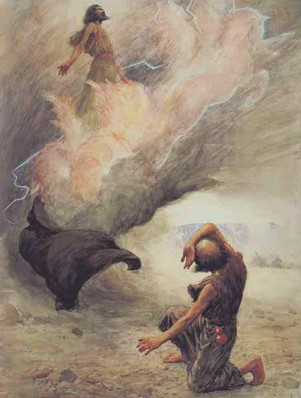
Yet, he remained disciplined as he learned from Elijah. Up until the time that Elijah was being taken away, he referred to Elijah as my father. The age differences could not have been so much. In fact, I do not believe that it was the protocol of the time. The respect emanated from a recognition of the significant contributions Elijah to his spiritual upbringing and the secrets relevant to his office. None of these stopped Elisha from bring in fresh ideas into the management of the problem of pervasive disobedience to God’s counsel by the nations and disregard for the potential consequences of the worship of Baal.
In all the service and miracles performed by God through Elisha the prophet, whether it was in response to sickness, death, financial need, hunger or to give wise counsel to kings, something to note is that God didn’t prevent problems and trials in the lives of His people. Instead, God used these occasions to increase their faith and trust in Him. God often allows problems and trials for our learning, for our experience and for our spiritual growth.
When we remember these stories, we can draw strength from them and understand that God is willing and able to help us with what we need, when we need it (2 Corinthians 9:8). In addition, that God expects us to keep all His commandments if we are to boldly come before Him in times of need (John 14:12-15; Hebrews 4:14-16); and that those who trust in God are to live by faith and not by sight (2 Corinthians 5:7).
Elisha’s lifework was in educating people about keeping God’s requirements and His blessings for living in faith. His message is just as important for us today, as we seek to draw close to and become more like the God who worked through Elisha. We must pray for God’s help and seek His Spirit as Elisha did.
Major Take-Aways From Elisha As Prophet
Elisha as the successor to the great Prophet Elijah was not a mere replacement. He took his time to learn in humility and intelligently changed the operational tactics from one of conflict with authorities to more of direct engagement by caring for the needs of people to demonstrate the nature of God and promote the free and open worship of the Almighty.
Elisha was as passionate about the correcting social wrong as his mentor, Elijah. Yet he was able to demonstrate the compassionate nature of God to help people navigate the challenge of social wrongs. it takes strong personal character to be so humble from such a very powerful personality.
Elisha didn’t ask for worldly honor or for a high place among men. What he desired was a large measure of the Holy Spirit that God had so freely placed upon the prophet Elijah. He knew that He needed God’s Holy Spirit to equip him for the responsibilities that lay ahead.
Mission Fields
People Saw It

Comments

Our Facebook page linked directly above is a very vibrant community where various topics get fleshed out. We also engage in discussions on Twitter and our LinkedIn group is growing beyond imaginations. Feel free to post your comments in your favorite format.

